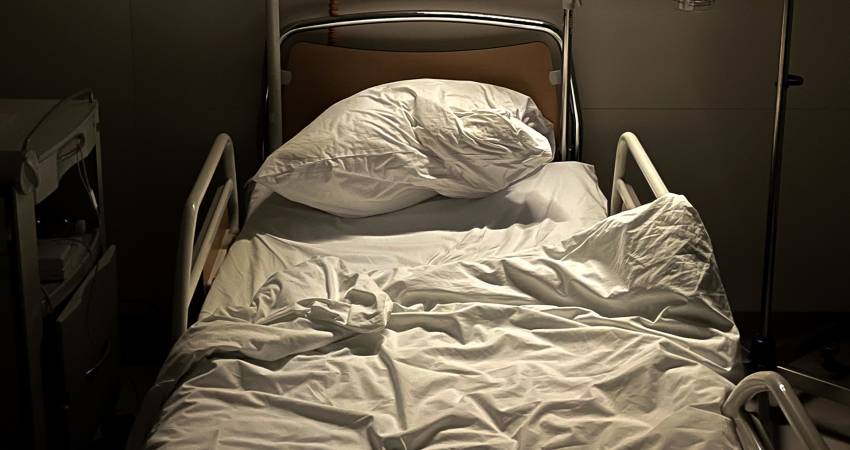
Legal “assisted dying” would cause “incorrect deaths,” committee hears
Palliative care doctors have told an Oireachtas committee meeting that legalised assisted dying would “inevitably” lead to “incorrect deaths” of vulnerable people.
Palliative care is an area of medicine that focuses on minimising the suffering of people with serious illnesses, often including conditions which are terminal. As a result, palliative care specialists mainly focus on taking care of patients who are dying.
This week, the Oireachtas Joint Committee on Assisted Dying was examining the potential impact that legalising “assisted dying” could have on this field of medicine.
“My question to the committee is, what percentage of incorrect deaths would be acceptable to legalise assisted suicide?” Dr. Matthew Doré of the Association of Palliative Medicine asked, adding that “consistent surveys and polls” revealed that “upwards of 82% of our membership are against this legislation”, as they believe that “inevitably there will be incorrect deaths” if it is passed.
These could include individuals struggling with mental health problems, older people who are victims of elder abuse, or people with an incorrect medical diagnosis, among others.
Furthermore, addressing the committee, Professor Regina McQuillan said that the Irish Palliative Medicine Consultants Association is “fundamentally opposed to the introduction of assisted dying, assisted suicide or euthanasia,” and added that any change to the current legislation would be “regressive.”
“Many commonly held perceptions about end of life are different from the reality we see every day,” she said.
“Death is sad for patients and their families, but most physical and psychological suffering can be well managed by comprehensive expert care. The wish to die is common, and usually transient.”
She added that “Meaningful long-lasting safeguards are impossible to construct.”
Additionally, Dr. Faith Cranfield told the committee that palliative care assists people to “better take control of the pain” they’re undergoing, and it gives families and friends of the dying person the time to have “really tricky conversations” in the person’s final days.
Dr. Max Watson of Hospice UK cautioned that “It is unlikely that hospices and palliative care services will engage with physician assisted dying,” adding: “I’m suspicious of safeguards, because I haven’t seen safeguards really working.”
He also warned that the legislation in the Republic of Ireland would create “difficult and contentious legal and political issues related to patients from Northern Ireland travelling south for assisted dying if there is no parallel legislation.”
Ben Scallan
This article first appeared in Gript and is posted here with permission
Photo credit: Unsplash
Featured
- Man jailed for 9 years for forced abortion
- Abortion coercion has arrived in Ireland – the NWC are silent
- Review of at-home abortions 'needed after coercion case'
- French Govt to remind 29-year-olds of biological clock
- Huge factor in decline in primary school numbers ignored
- Germany Denies Promoting Abortion Abroad—While Funding Pro-Abortion NGOs
- Govt don’t oppose Coppinger abortion bill at 1st stage
- March for Life: Vance, the White House, and a Divided Pro-Life Movement
- Paris’ Annual March for Life Puts Euthanasia in the Spotlight
- Britain’s seemingly limitless abortion rate
- The importance of the work carried out by Every Life Counts
- Puerto Rico officially recognizes unborn children as ‘natural persons’
- Assisted suicide laws stalled by “complex” legal issues
- Yes, that hideous celebration of 300 abortions is real
- White Crosses Memorial: Dungarvan once again pays its respects to our aborted babies
- Josiah: Abortion Survivor
- Rally for Life 2025
You can make a difference.
DONATE TODAY